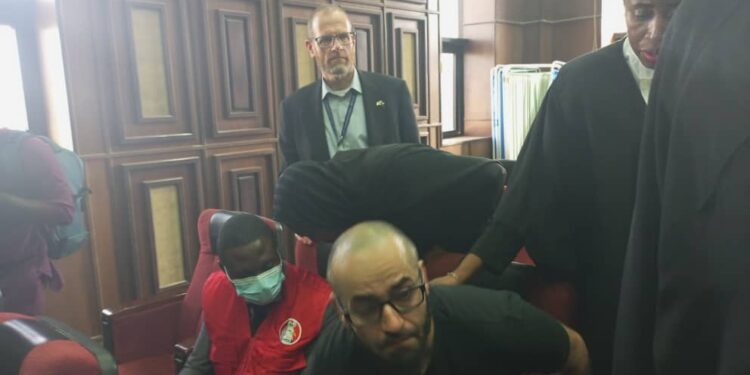A senior official from the Ministry of Foreign Affairs has revealed that the United States is seeking consular access to Tigran Gambaryan, a detained executive of Binance, who is currently being held at the Kuje custodial center in Abuja.
Gambaryan, a US citizen and Binance’s Chief of Financial Crimes Compliance, was arrested in February 2024 along with another executive, Anjarwalla, upon their arrival in Nigeria. Their detention followed an investigation that linked Binance to allegations of money laundering and terrorism financing.
Justice Emeka Nwite of the Federal High Court in Abuja is scheduled to rule on a new bail application filed by Gambaryan’s lawyers on October 9.
Concerns regarding Gambaryan’s well-being have been voiced, with Binance CEO Richard Teng calling for his release due to claims of deteriorating health and inadequate medical care. Additionally, Gambaryan’s family has reported that he is being denied access to a wheelchair.
The MFA official, who requested anonymity due to lack of authorization to discuss the matter, informed media that the US is particularly focused on Gambaryan’s health.
“The US is concerned about his well-being, especially since his family has raised the issue publicly in the US. They are not lobbying but are concerned about not being granted consular access,” the official explained. “Remember, Binance has had issues in the US as well.”
In response, retired Nigerian Ambassador to Mexico and Singapore, Ogbole Amedu-Ode, stated that the US request for consular access is justified but should not interfere with Nigeria’s legal proceedings.
“The US is right to request consular access,” he said. “Nigeria respects the legal processes in other countries when Nigerians are detained abroad. We should allow the Nigerian legal system to proceed without external interference.”
Retired Consul to Cameroon and Delegate to the World Expo and Economic Development Centre in Paris, Ambassador Rasheed Akinkuolie, emphasized the important role of embassies in safeguarding their citizens detained abroad.
“It is the right and duty of every embassy to ensure access to their nationals detained in a foreign country, regardless of the charges,” Akinkuolie said. “The embassy’s involvement is crucial to ensure the individual is not mistreated or unjustly punished.”
Akinkuolie added that embassy involvement often leads to better treatment for detainees, as host countries become more cautious when an embassy is engaged. “When embassies are involved, the host country tends to handle the detainee more carefully,” he noted.



